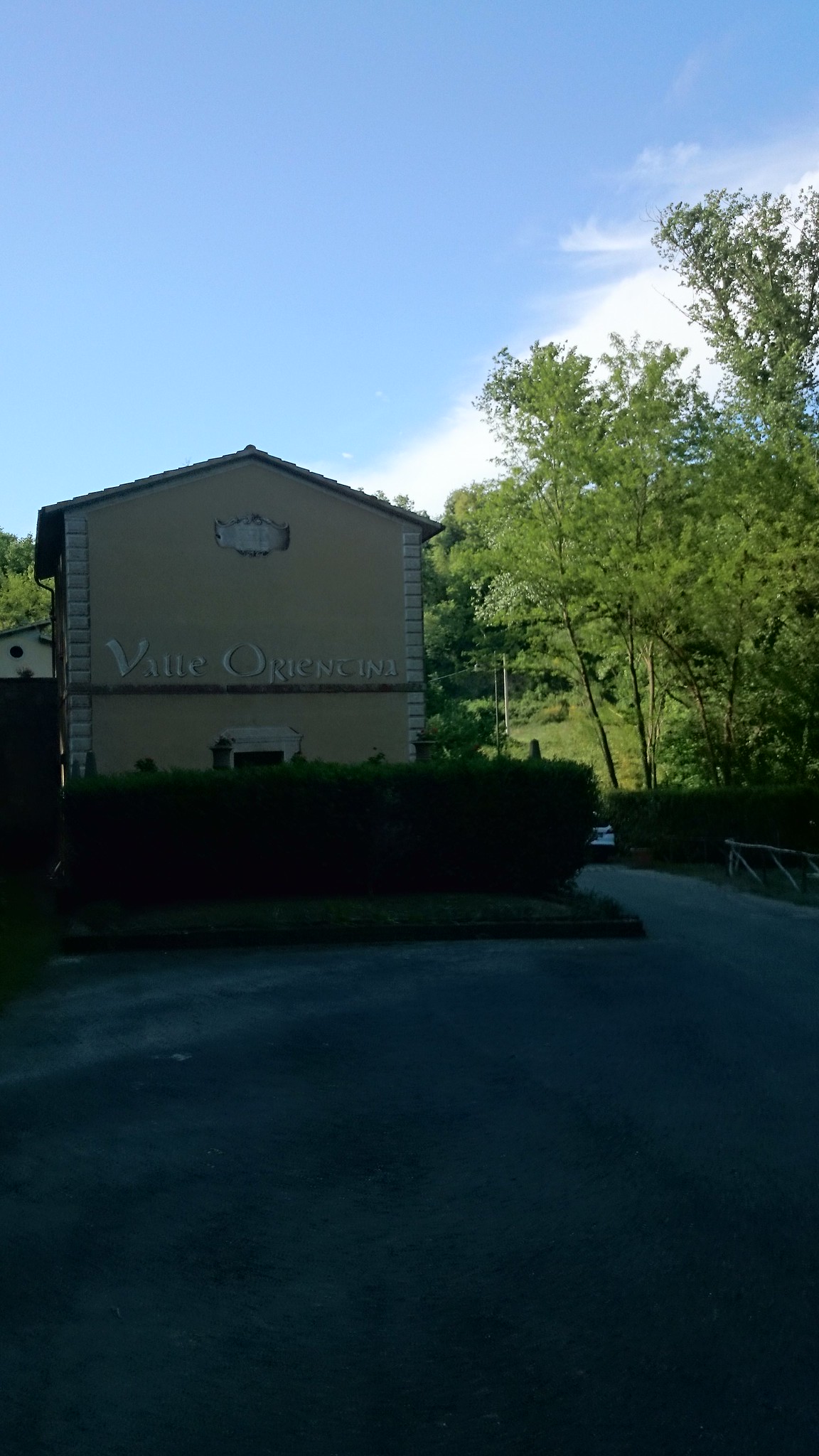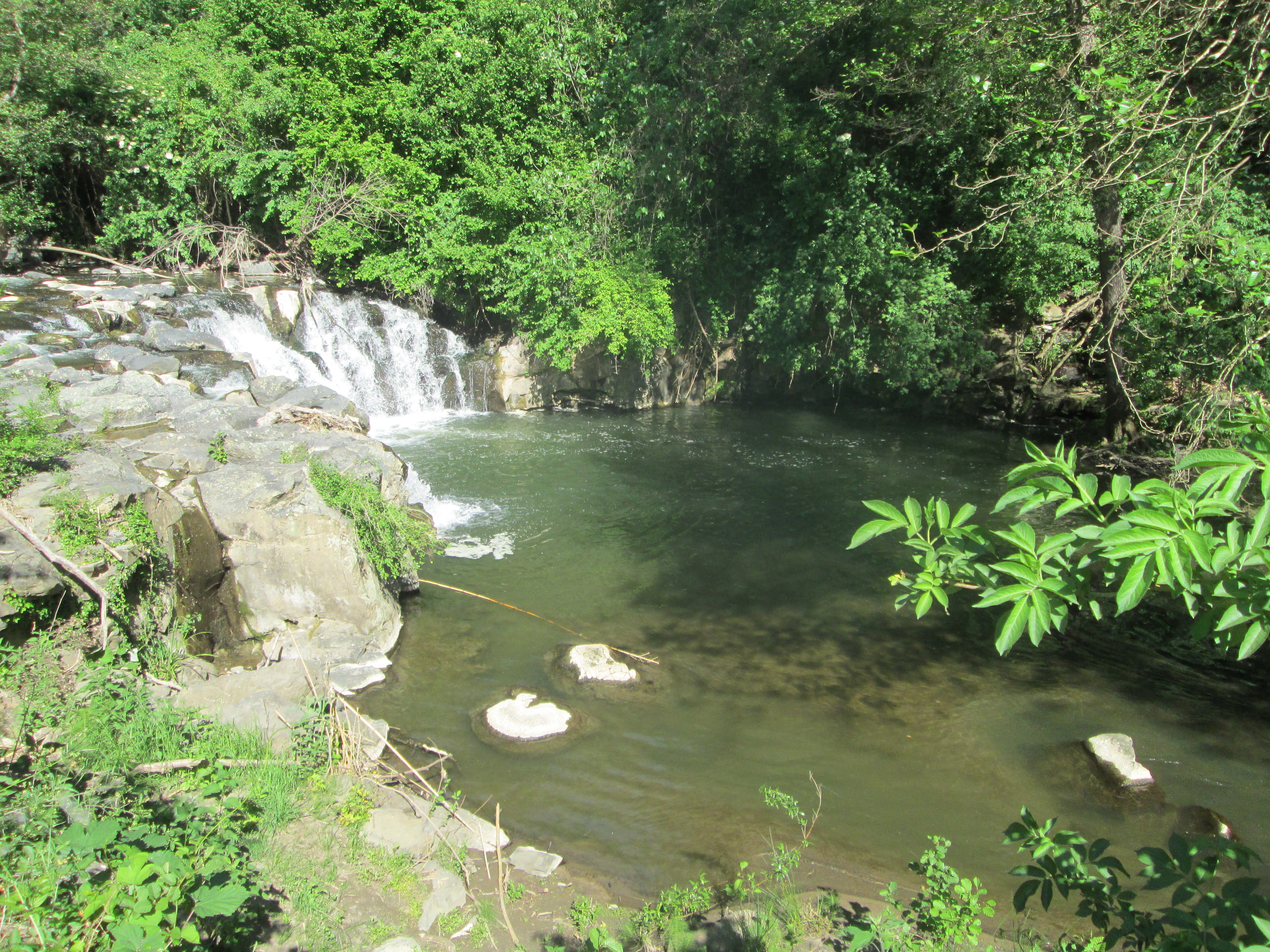The Jews of Rome
The town of Pitigliano (situated in the very south of Italy's Tuscany) is a bit of an anomaly for Italians town. Important during medieval times, well preserved and perched over and above a narrow gorge (see photo below), the town has for an oddity: a rich Jewish heritage.
Many Jewish people left Rome during the Counter-Reformation and somehow it was Pitigliano that provided a safe haven, being just beyond the grasps of papal Rome.
For many centuries thereafter the Jewish community had a large influence on the towns traditions and development.
Many Jewish people left Rome during the Counter-Reformation and somehow it was Pitigliano that provided a safe haven, being just beyond the grasps of papal Rome.
For many centuries thereafter the Jewish community had a large influence on the towns traditions and development.
And why is this relevant?
Near Pitigliano (about 4 kms out of town) is a hot spring which saw a building established on top and is better known as the Jewish bath of Pitigliano.
However, better times (especially after the second World War) saw many of Pitigliano's Jewish community assimilate and/or leave altogether.
Meaning the bath building came into disrepair.
Now the building is part of a hotel / BnB (named Valle Orientina [Oriental valley]) which uses the renovated bath to promote a wellness stay.
However, better times (especially after the second World War) saw many of Pitigliano's Jewish community assimilate and/or leave altogether.
Meaning the bath building came into disrepair.
Now the building is part of a hotel / BnB (named Valle Orientina [Oriental valley]) which uses the renovated bath to promote a wellness stay.
Experience
We arrive late in the afternoon, having been discovering the surrounding countryside first.
Valle Orientina is located in a nice green place, especially this time of year and it's not so difficult to find either. The junction for heading towards the baths is a couple of kms north of town. The road drops into a shady green valley towards a parking area with the bath house behind.
Valle Orientina is located in a nice green place, especially this time of year and it's not so difficult to find either. The junction for heading towards the baths is a couple of kms north of town. The road drops into a shady green valley towards a parking area with the bath house behind.
The interior of the bath house is easy to view: there's a glass door to look through. Beyond the door there is a stair which leads to the bath waters themselves. Not much steam inside and not very busy, actually it's deserted.
We wander onward towards what appears the main building. Inside we ask the reception for the opportunity to bathe. It's a hefty 10€ per head, seems a bit steep for a lesser maintained walled in bath.
In the main building we have to descend the stairs to the main wellness area located in the basement, again deserted. Apparently we have to change here in the changing room, despite the Jewish baths having their equally small changing room.
As we need to retrace our steps through the hotel building itself and having to need some state of decorum, it means that we have changed virtually nothing.
So back at the baths we remove further clothing (exclusing swim costume) and step into the baths.
The building itself has a vaulted ceiling and a few minuscule windows to let in just a bit of daylight, which otherwise streams in through the glass door.
The building (and thus bath) itself houses 5 subsections: that in line with the entrance, and on either side 2 subsections. The back sections contain water spouts with some massaging qualities. Furthermore it doesn't seem so but it's a little chillier than the quoted 37°C.
After a half hour of splashing we leave the building, partially relieved.
Nice plus
Strangely the English version of the website of Valle Orientina has no further information on the baths. It contrasts greatly with visitor experience.
Take for instance booking.com users giving a 8.4 (30 reviews) to the accommodation here with most naming the terme as it's sole positive aspect.
Tripadvisor visitors rate this place a 4.5 star (221 reviewers) stay over. Some reviews:
'The SwimmingPool with Thermal water is Amazing'.'The Hot Springs pool is pretty nice'.'The spa is incredible!!!'The spa is a little gem and unique in itself''.'The spa is wonderful'.'The thermal baths are a nice plus'.
The Italian version of the website though has much more information on the hotel, the baths and bathing. It also has an overview with the usual loads of rules; the most important one I could find: for purposes of hygiene swim wear is required. That seems a bit of a contradiction unless they frown on modern day swim wear which seems to be shorts and t-shirts.
This picture from Valle Orientina website suggests that the former rule may well be open to interpretation.
In Italian we also learn that it was in use with the Jewish community for their ritual purification bath (Mickvèh) until the 1950's.
The tradition of Mikvèh is a cleansing ritual which seems solely obliged to women, men tend to need a lot less purifying it seems (note to readers: I actually believe the opposite to be true).
The waters are 37°C, natural rich in calcium, magnesium, iron - the absence of sulfur.
Elsewhere in the main building the Valle Orientina's wellness programme includes a sauna, a salt cave and a jacuzzi.
Spicing up
Besides a visit to Pitigliano itself, there's some delightful waterfalls more southerly in Lazio near the town of Farnese. West of this village, once the road crosses a big stream, there's a waterfall directly north of the road. But this is not where we are heading.
A few hundred meters later there's a sign board on the south near a track indicating a track to Cascata del (di?) Salabrone (tripadvisor). This Cascata is part of the Selve del Lamone natural reserve, where there's been quite some effort to get visitors actively seeking it's secrets.
Park along the SR47 roadside and walk another 500m or so to a clearing. Directly in front is a small unused hydro power station. Behind this is a small waterfall, while a 100m upstream is a larger waterfall with a 5m drop.
Both waterfalls (should!) invite a bit of skinny dipping ....
Purifying my own body and spirit!






Hi,
ReplyDeleteFirstly, Thanks so much for the informative article on the hot springs at Valle Orientina. As an observant Jew, I'd like to correct you on a few misconceptions. Firstly, in Judaism both Men and Women use the Mikve. As an example, the most famous natural spring Mikve of all is Called the Ari Mikveh and its used exclusively by men. In Judaism we have 613 commandments. Some are for men others are for women. The commandment obliges a married woman to use the Mikveh, while for a married man its a good deed. The concept of the Mikveh regarding women specifically deals with the life cycle, and fertility. As water is the most essential element of life, in Judaism it spiritually represents both renewal and fertility. What is more of note for this article though, is that according to Jewish law you must also be fully undressed, which is ironic considering the hotel policy.
-A from Jerusalem
Thank you for this additional information.
ReplyDelete